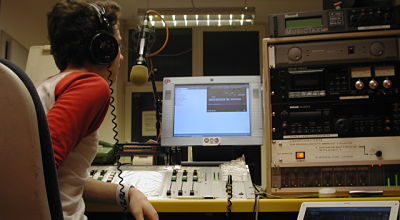Radio Personnel Risk Lives for Gospel
The U.N. Security Council has described the Arab Spring as the “most significant event of the early 21st century.”
Although some changes have undoubtedly been made over the last year, this freedom only stretches so far.
Reporters Without Borders has announced that the Arab Spring has resulted in more Internet censorship in the Middle East and North Africa. The group recently designated Syria, Iran, Saudi Arabia and Bahrain to be “Internet Enemies” and has placed Egypt, Tunisia, Turkey and the United Arab Emirates “under surveillance,” according to the Jerusalem Post.
Of course another result of the Arab Spring, however, has been open hearts to the gospel. But studies show that about 95 percent of people in the Arab world will never meet a Christian. In those MENA nations that remain hostile toward Christianity and censor information outlets like the Internet, finding the way to Christ isn’t easy.
“Especially in light of what’s happening with the Arab Spring, people are looking for other ways to access the gospel,” says Wayne Pederson with HCJB Global.
Pederson says people are going to extremes to get a glimpse of Jesus’ teachings: “[One man] saved up money for several years so he could take his family to Europe so they could find out more about Jesus, and find out more—in freedom and safety—how they could become followers of Christ.”
In response to this desperation, the few believers that are willing are risking everything to bring Christ to the masses effectively. And they’re using radio.
HCJB trains radio personnel right on the ground across MENA nations. “The programs are produced in country by indigenous people that know the language and know the culture. Then the programs are sent out of the country where the post-production is done,” explains Pederson.
They’re using all means of communication—satellite, Internet and shortwave—to get various programs out. Follow-up to programs is done by local church planters, often via text message and Skype.
Doing training and follow-up work right on the ground is a feat few would taken on. It’s incredibly dangerous in some areas and isn’t getting any easier. But the believers involved are committed to their call.
“Even though they do the training and do the programming at great risk, when they talk about it they say, ‘Jesus risked it all for me. How can I do anything less?’”
The risks they are taking are worth the results. A year ago, Intermedia did a survey for HCJB, concluding that 1.5 million people across the MENA region were listening to their broadcasts every week. HCJB was only covering about 30 percent of the region at that time. Now, they’re covering about 60 percent. The listenership has undoubtedly increased, says Pederson.
Millions are hearing the truth of the gospel via these radio programs, and despite any Western perceptions of the Arab world, hearts are ready to listen.
Pederson notes, “There is a small percentage of terrorists that are making news around the world, but the huge majority of people in that part of the world are poor, destitute, despairing and really are searching to find out who Jesus really is.”














































